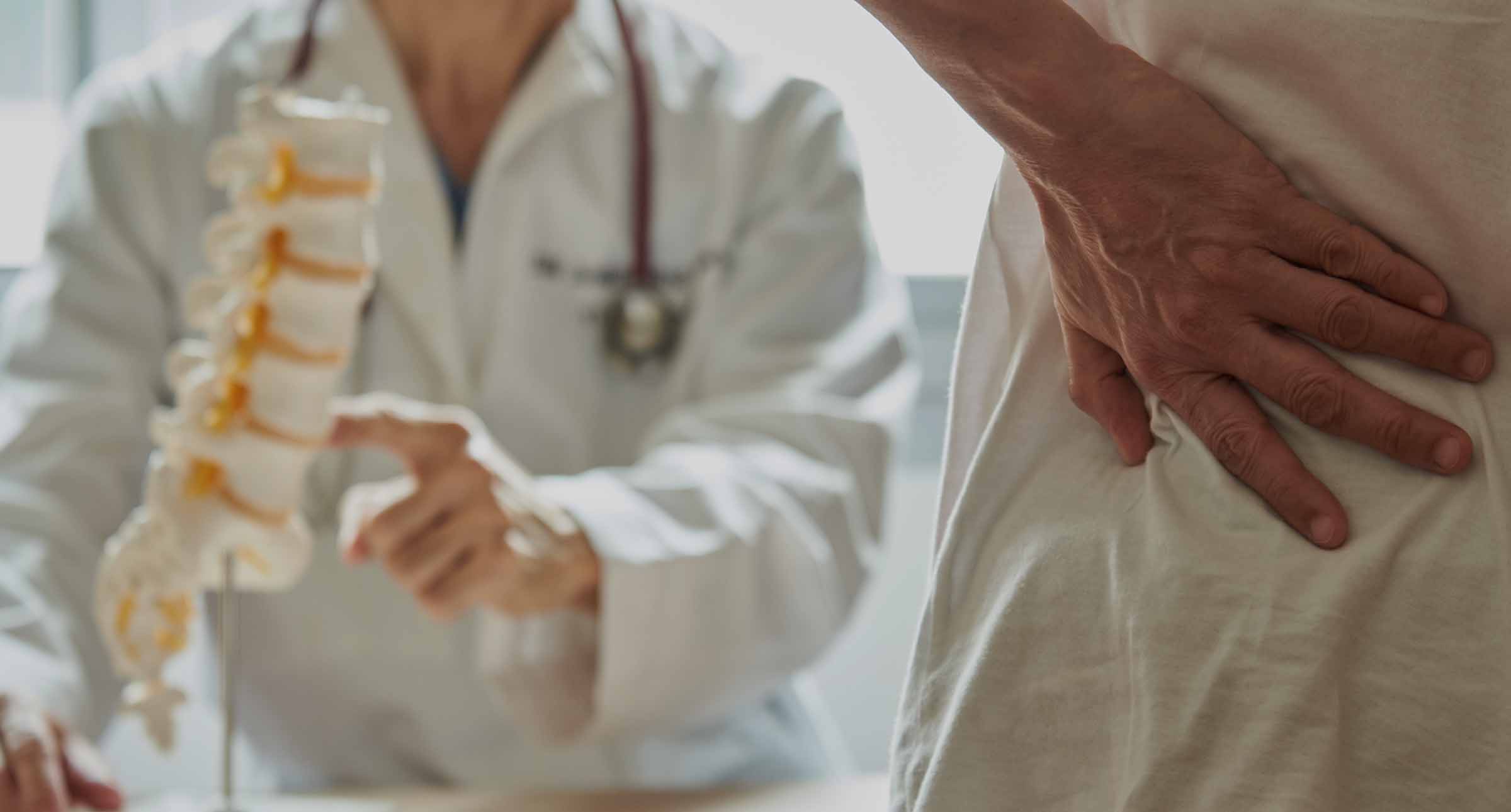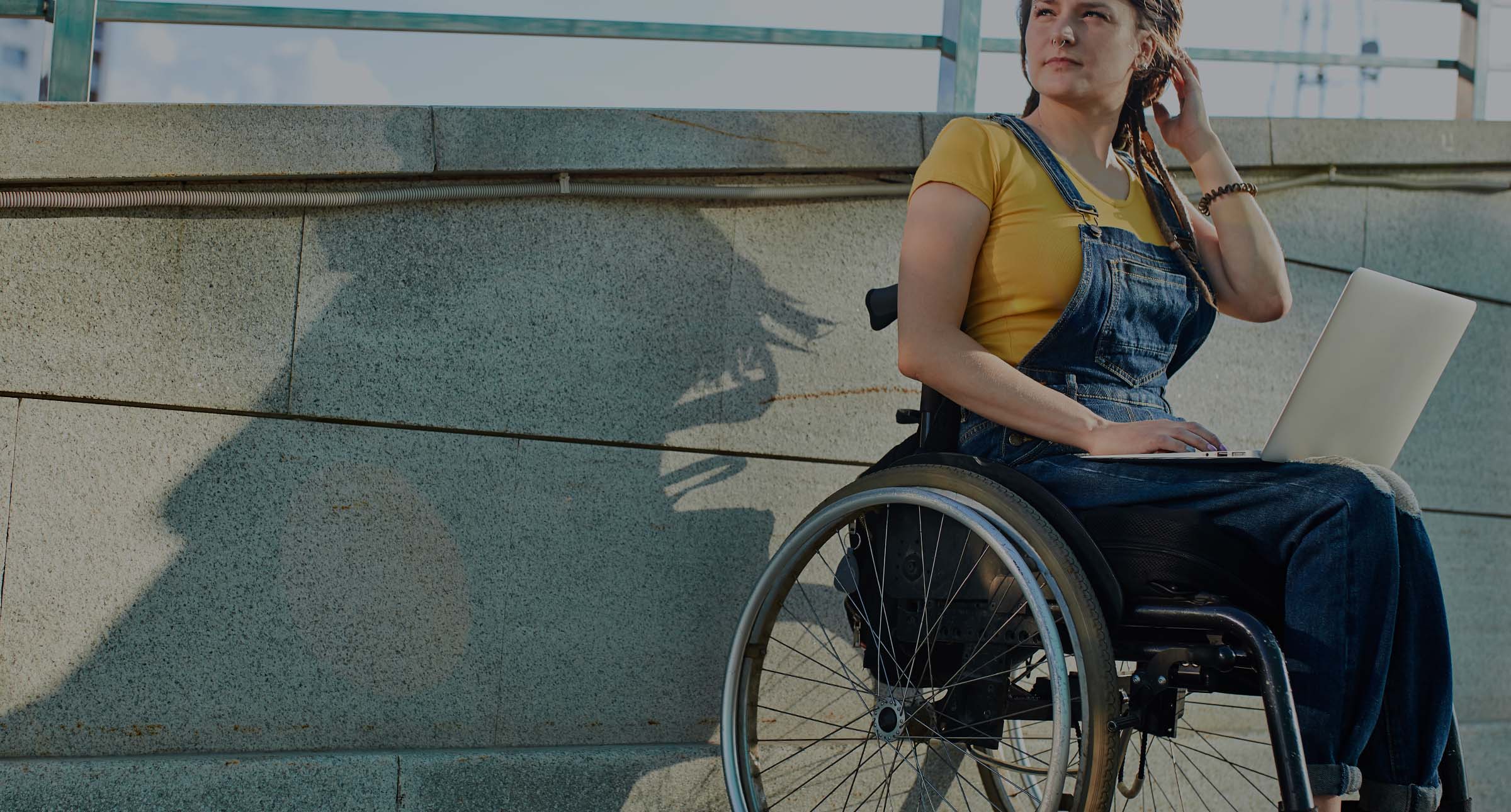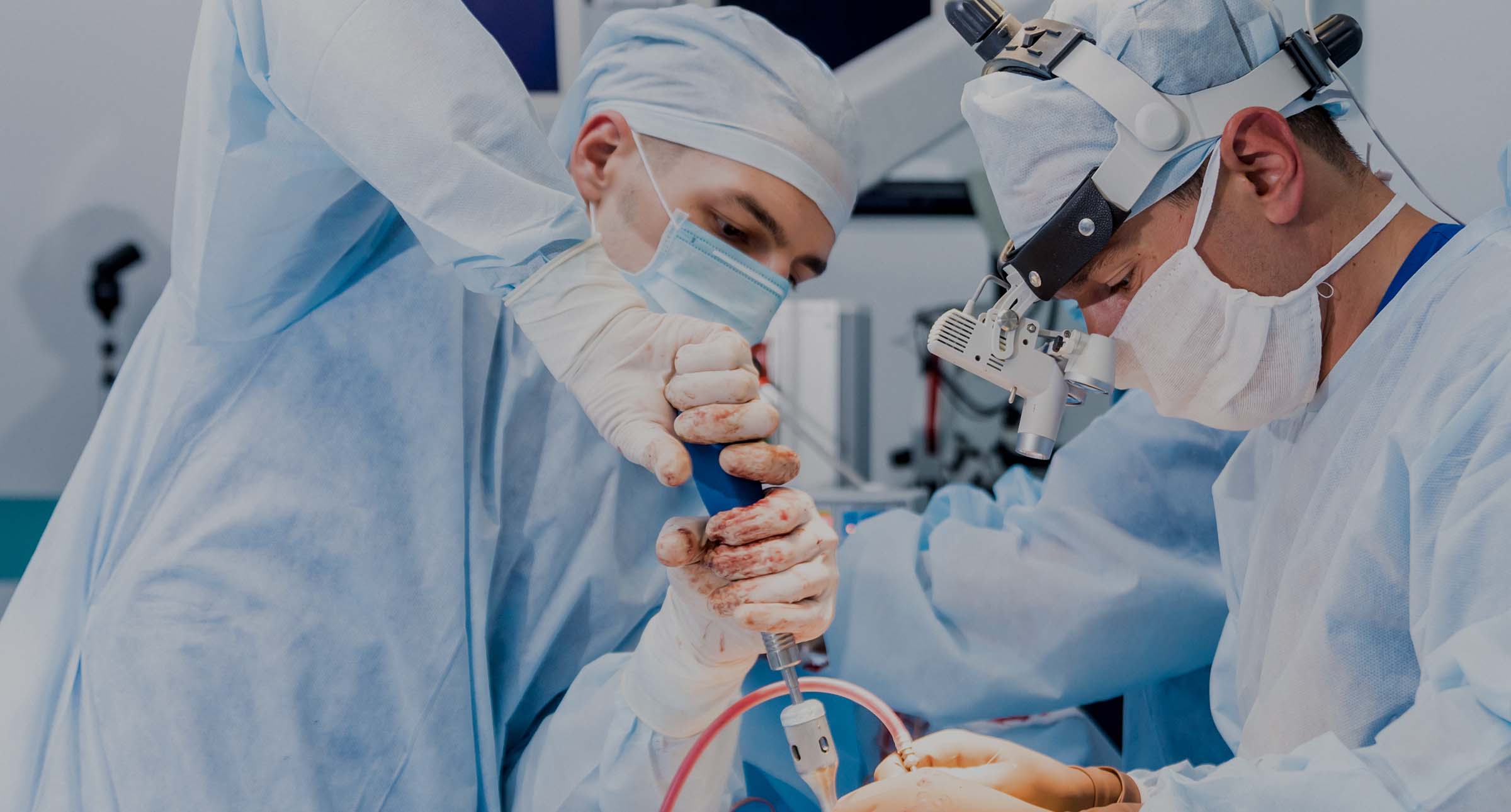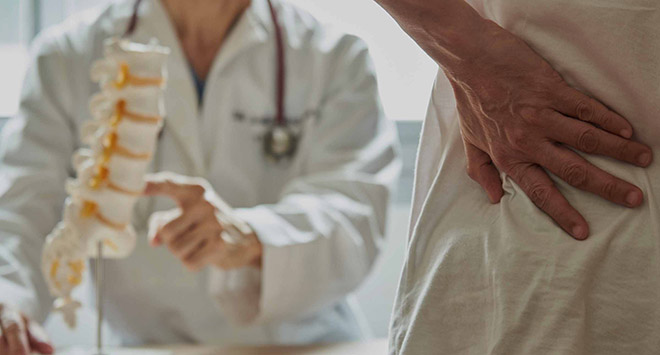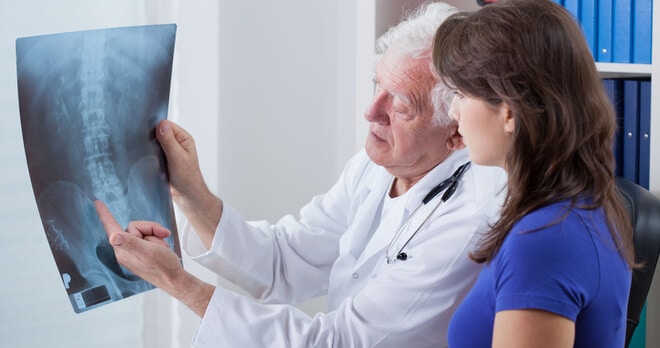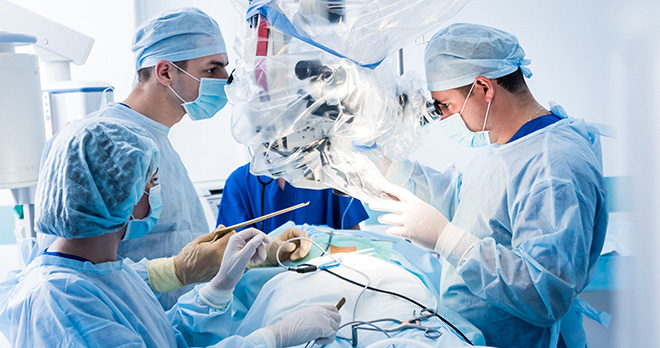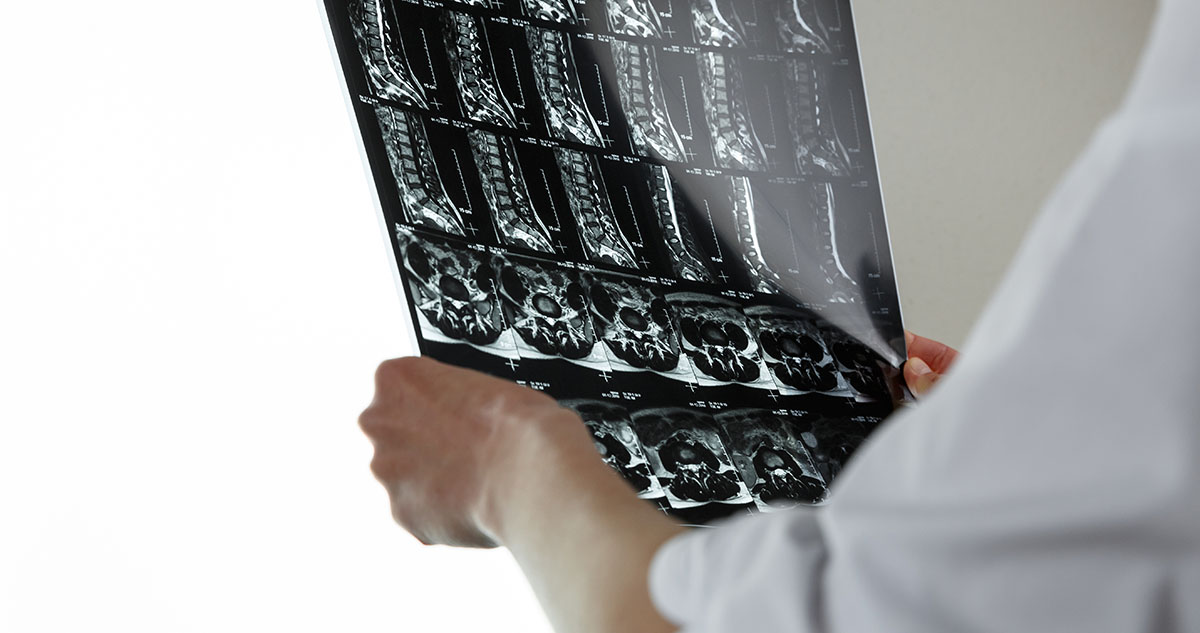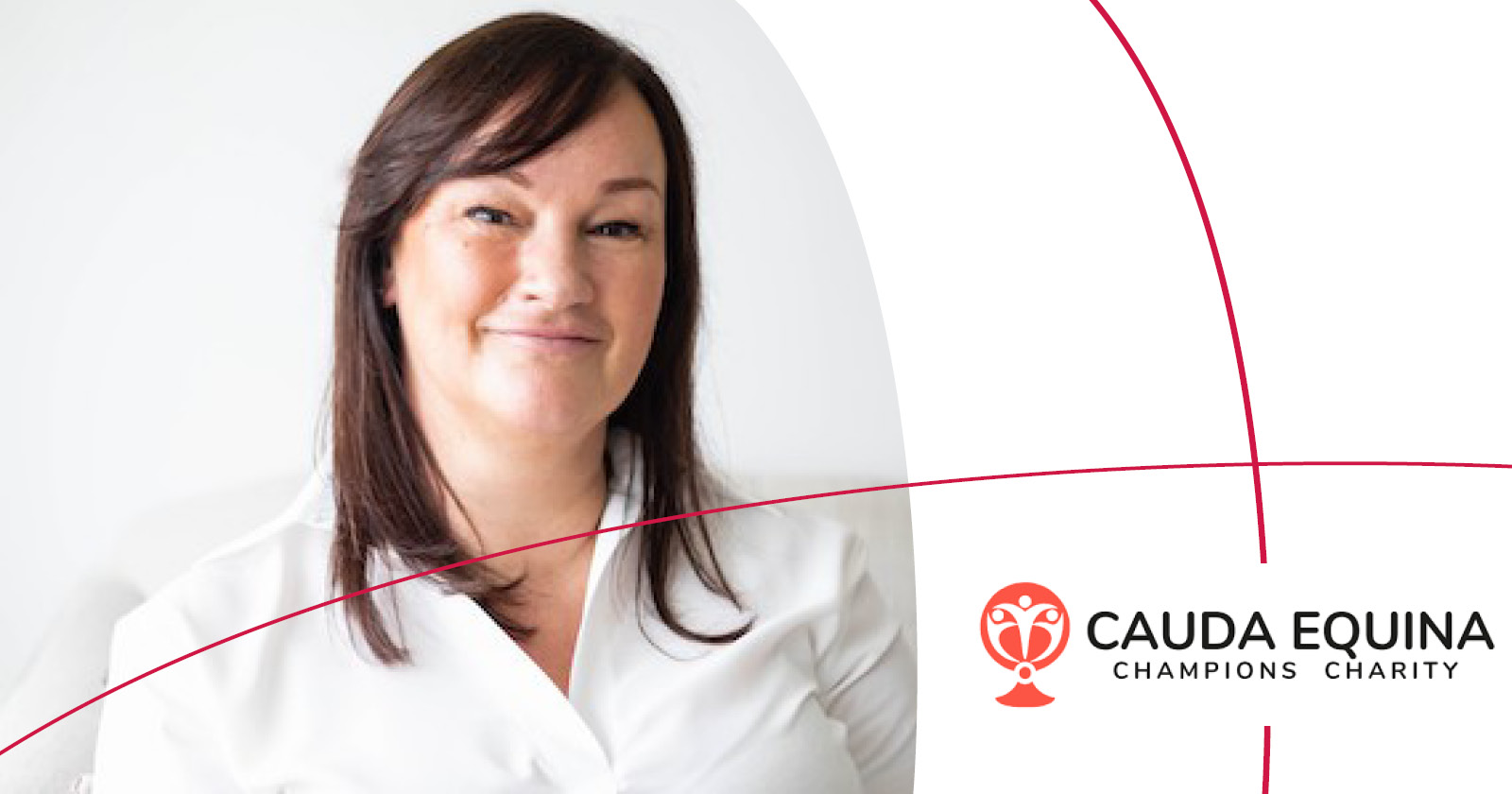Living with cauda equina syndrome – things you might need to know.
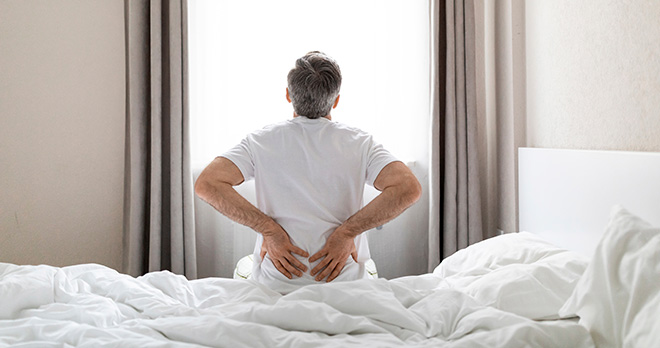
Is cauda equina syndrome a permanent disability?
Cauda equina syndrome (CES) is a relatively rare but serious medical emergency. It happens when the nerve roots in the lumbar spine are compressed, cutting off sensation and movement. CES is not a permanent disability itself, but if you develop CES and do not get prompt treatment you can be left with permanent disabilities including:
- Mobility issues
- Ongoing pain
- Weakness
- Lower limb paralysis
- Foot drop
- Loss of feeling/sensation
- Bladder dysfunction
- Bowel dysfunction
- Sexual dysfunction
These symptoms can also, understandably, lead to psychological disabilities including anxiety and depression that can be transient or permanent.
In some cases, even with quick treatment you may be left with some form of permanent disability, but the best outcomes occur with early treatment.
Are there different levels of cauda equina?
There are two recognised levels of CES:
-
CESI - ‘partial’ or ‘incomplete’ CES
If you have CESI there will still be some bladder function but there can be impaired bladder sensation, impaired urethral sensation, impaired rectal sensation, genital/peri-anal sensory disturbance and/or reduction in anal tone. If there is prompt surgery during this stage it may produce a reasonably favourable outcome.
-
CESR - ‘established’ or ‘complete’ CES
If you have CESR there will bladder paralysis and retention. This can sometimes also be evidenced by overflow incontinence. Surgery after this point is unlikely to alter the outcome.
There may often be only a short window of opportunity between the condition being “incomplete” and “complete”. Time is therefore “of the essence” in treatment of the condition.
Can you live a normal life with cauda equina?
What problems can you have after cauda equina surgery?
The extent of recovery from CES after surgery depends on you as an individual and many factors including the extent of the initial damage to the nerves, whether you were in CESI or CESR at the time of the surgery and how quickly you underwent surgery. Surgery can be deemed successful if it prevents further deterioration, so even with successful surgery you may be left with permanent issues, such as bladder and bowel problems, mobility issues and chronic pain. Once bladder paralysis has occurred and you are in CESR, permanent bladder bowel and sexual impairment is likely, even after surgery.
The first few months after surgery are important for recovery, however there can be more subtle improvement over many years. There are a number of therapies available to help you. Specialist advice on rehabilitation is essential and ongoing monitoring should help to ensure that you achieve your full potential.
The Cauda Equina Champions Charity and Spinal Injuries Association offer a wealth of support in this area.
Can you walk again after cauda equina?
Again, this depends on your individual condition and the extent of the disabilities experienced. For example, if you experience foot drop, ongoing pain in the back or legs or loss of sensation in the legs can make walking difficult or impossible. Sometimes you may be able to walk but only for short distances and/or with the use of walking aids. Sometimes cauda equina syndrome has no impact on mobility and you will be able to walk as normal.
Does cauda equina syndrome get worse over time?
After a period of time when there is no further improvement, CES is likely to remain stable. It is sometimes possible, as you age, to experience deterioration in respect of some of the CES symptoms. For example, the need to catheterise could lead to more frequent urinary tract infections with age and decreased mobility could lead to more frequent falls.
What medication is used for cauda equina syndrome?
There is no medication specifically for CES. However, medication can be prescribed to assist with the individual symptoms. For example pain relieving medication, medication to help regulate the bowels, medication to help with bladder spasms and medication to assist with erectile.
Financial support for people living with cauda equina syndrome
Can I get PIP for nerve damage?
If you have CES (or other types of nerve damage) you and/or those caring for you may qualify for disability benefits, such as Personal Independence Payments (PIP). PIPs are not means tested and eligibility depends on the severity of the condition and its impact on your daily life. The rules around disability benefits often change and so it is best to consult the current government guidance before making an application and get specialist advice from Citizens Advice before submitting a claim.
You will need to provide extensive information about your condition and the impact it has on you when you apply, so it is very helpful to keep hold of any documents that you have relating to your condition.
To get PIP you must find it hard to do everyday tasks or get around because of a physical or mental condition. You must have found these things hard for three months and expect them to continue to be hard for another nine months. You must be living in England or Wales when you apply – unless you or a close family member are in the armed forces. You must also be at least 16 years old to get PIP.
There are two components that you may be entitled to:
1. Mobility
To get the mobility component of PIP, you must have a physical or mental condition that limits your ability to carry out some or all of these activities:
- planning and following journeys;
- moving around.
2. Daily living
To get the daily living component of PIP, you must have a physical or mental condition that limits your ability to carry out some or all of these activities:
- Preparing food
- Eating and drinking
- Managing your treatments
- Washing and bathing
- Managing toilet needs or incontinence
- Dressing and undressing
- Communicating verbally
- Reading and understanding written information
- Mixing with others
- Making decisions about money
Each component can be paid at one of two rates, either the standard rate or the enhanced rate. If the DWP decides that your ability to carry out the activities is limited, you will get the standard rate. If it’s severely limited, you will get the enhanced rate.
What points are needed for PIP?
A scoring system is used to assess your eligibility for PIP. Your ability to carry out each activity is measured against a list of standard statements describing what you can or can’t do. These are known as the descriptors. The health professional who assesses you will advise the DWP which descriptor applies to you for each activity.
For example, there are six descriptors for ‘Dressing and undressing’, ranging from ‘Can dress and undress unaided’ to ‘Cannot dress or undress at all’.
Each descriptor carries a points score ranging from zero to 12.
For each activity the assessor must decide which descriptor is likely to apply to you on most days. Most days means more than 50% of the days in a year.
The assessor must choose the descriptor with the highest number of points that applies to you on most days.
When the assessor decides which descriptor applies to you, they must consider whether you can carry out the activity reliably. This means:
- Safely in a way that is unlikely to cause harm either to you or anyone else, either during the activity or afterwards
- To an acceptable standard
- Repeatedly as often as is reasonably required
- In a reasonable time period – should take you no more than twice as long someone without your condition
Your ability to carry out the daily living activities and the mobility activities will be assessed as if you were wearing or using any aids or appliances that it would be reasonable for you to use. This applies whether or not you normally use those aids or appliances. However, if you use or need aids and appliances, this can help you to score more points.
What is the daily living score for PIP?
As the rules currently stand, if you get between eight and 11 points in total, you’ll get the daily living component of PIP at the standard rate.
If you get at least 12 points in total, you’ll get the daily living component at the enhanced rate.
What is the mobility score for PIP?
If you get between eight and 11 points in total, you’ll get the mobility component of PIP at the standard rate.
If you get at least 12 points in total, you’ll get the mobility component at the enhanced rate. As mentioned above though, these rules are subject to change.
What is PIP payment for incontinence?
Managing toilet needs or incontinence is a daily living activity. The points scored for this activity are added to the points scored for other daily living activities. You can score between zero and eight points in respect of ‘managing toilet needs’. The maximum of eight points is awarded if you experience incontinence (both bladder and bowel) and you need someone to help you to manage it or clean yourself afterwards. No points are awarded if you experience incontinence but can manage it yourself and you can clean yourself afterwards without any special aids (aids can include pads, an adapted toilet or commode and grab rails).
Can I claim compensation for cauda equina syndrome?
Cauda equina syndrome is sometimes caused or worsened by negligent medical care.
You may be eligible to make a clinical negligence claim for compensation if:
- You have developed cauda equina syndrome as a result of substandard surgical treatment;
- You have developed the symptoms of cauda equina syndrome and there has been a negligent delay in treating it, leading to a worse outcome; or
- The treatment you received for your cauda equina syndrome (e.g. decompression surgery) was carried out in a substandard fashion, leading to a worse outcome.
In order to be successful in proving a clinical negligence claim you’ll need to prove two things:
‘Breach of duty’ and ‘Causation’
Breach of duty is when you show that the treatment you received fell below a reasonable standard of care you would have expected to receive from a reasonably competent doctor in his or her field at the time of treatment. If the medical evidence showed that they acted in a way that was acceptable to most doctors in the same field, this will be a valid defence and your claim probably won’t succeed.
Causation is when you show that the failings in your medical treatment caused you to suffer an injury, and that you are entitled to compensation for those injuries.
If breach of duty and causation can be proved, you are likely to be able to claim compensation for cauda equina syndrome.
What are the NHS red flags for cauda equina syndrome?
Red flags are symptoms which should alert any doctor to the likelihood of cauda equina syndrome that require rapid investigation and treatment. They can include:
- Severe back pain
- Sciatica in both legs
- Anal and/or buttock numbness
- Loss of feeling between the legs (saddle anaesthesia)
- Sexual dysfunction
- Motor weakness, sensory loss or pain in both legs
- Bladder retention and/or incontinence
- Bowel disturbance/continence
It is certainly not the case that every person with cauda equina syndrome complains of precisely the same symptoms. The condition does not follow the same course in every person. For example, not everybody with cauda equina syndrome has lower back pain.
How do doctors test for cauda equina?
There are various neurological tests that can be used to diagnose cauda equina syndrome.
Neurological tests carried out by doctors can include:
-
Pinprick test
A pin type instrument is gently used to check for numbness or altered sensation in the lower body, which can be an indicator of CES.
-
Straight leg raise test
You will lie on your back and the doctor will lift your legs up, keeping your knees straight, and ask if and when you feel pain. If you report pain between the 30 and 60 degree points this could be an indicator of CES.
-
Ankle reflex test
Weak or absent reflexes in the ankle could be an indicator of CES.
-
Bulbocavernosus reflex test
This involves examination to check a reflex that involves the muscles of the buttocks and the exit of the bladder. If this reflex is absent it could be in an indicator of CES.
-
Digital rectal examination
A check for tone and sensation in the rectal muscles. If the tone and sensation felt is absent or abnormal it could be an indicator of CES.
-
Catheter tug test
If you are catheterised due to urinary retention, the doctor can perform a quick tug on the catheter to check the reflex in the urethra. If this reflex is absent it could be an indicator of CES.
If these tests indicate potential cauda equina syndrome, you will be sent for an urgent MRI scan. The scan pictures will then be reviewed by a radiographer to see if the nerves are being compressed and a diagnosis will be confirmed.
Even if scan findings don’t definitely show cauda equina syndrome, doctors are encouraged to “treat the man not the scan”, so if there are strong signs of the condition a person should be treated appropriately.
Who is responsible for cauda equina syndrome?
Cauda equina syndrome is sometimes caused or worsened by negligent medical care. This typically occurs if there is delay in either referring somebody with suspected cauda equina symptoms to hospital, or in making the diagnosis and treating it appropriately when admitted to hospital.
There is often only a short window of opportunity between the condition being “incomplete” (where prompt intervention may produce a reasonably favourable outcome) and “complete”, after which it is unlikely that any intervention will alter the outcome. Time is therefore “of the essence” in treatment of the condition.
Furthermore, if you have undergone surgery to the lumbar spine for another spinal condition, but have ended up with symptoms consistent with cauda equina syndrome (pain, numbness, paralysis, loss of bowel and/or bladder function, loss of sexual function) again you should seek legal advice. It may be that this outcome was avoidable if the surgery had been conducted competently.
Finally, if cauda equina syndrome has occurred following spinal surgery, and you were not warned prior to undergoing the procedure that this was a risk of the procedure, you may have a claim on the basis that you did not give properly informed consent. To succeed in such a claim, you would need to prove that if you had received the appropriate warning, you would not have gone ahead with the operation, at least at that particular time and by that particular surgeon. It is then open to you to argue that you would not have sustained the injury.
Therefore, in essence any clinician you come into contact with when suffering from cauda equina syndrome could potentially be responsible for clinical negligence if they breach their duty of care towards you and that breach of duty causes you to be in a worse position than you would have been in, with reasonable care.
This could include physiotherapists, osteopaths, chiropractors, physiotherapists, GPs, paramedics, hospital doctors and radiographers.
How do I get compensation for injury?
In order to make a compensation claim for cauda equina syndrome, all you need to do is get in touch with us. We will advise you as to the strength of your claim, and how it can be funded. Following this, we will then obtain all of your medical records, prepare witness statements, commission expert medical evidence, value your claim, and carry out all negotiations on your behalf.
If necessary, we will issue court proceedings and prepare your case for trial. Only a tiny proportion of cases actually proceed to trial, but it is vital to instruct a lawyer who is prepared to take the case there if necessary.
It can seem daunting to start a claim for compensation against a doctor or other medical professional, but we will take care of everything on your behalf.
The length of time for such claims to reach a conclusion varies, but a typical case may settle within three years of lawyers being instructed. If negligence is admitted, we will always obtain early interim payments of compensation so the injured person can start to improve their quality of life at the earliest opportunity.
Contact our enquiries team to find out whether we can help you make a claim for compensation.
Call no
